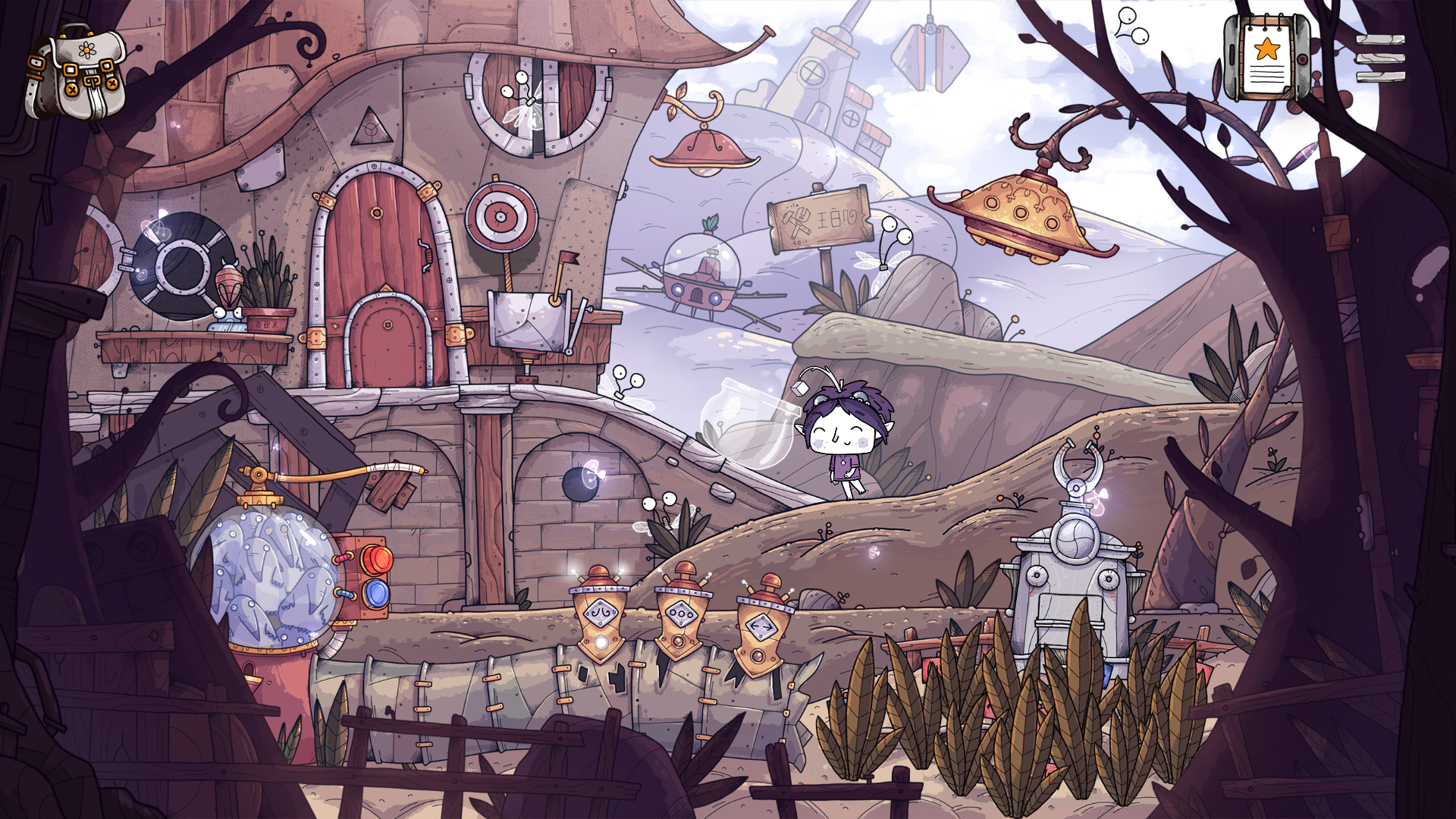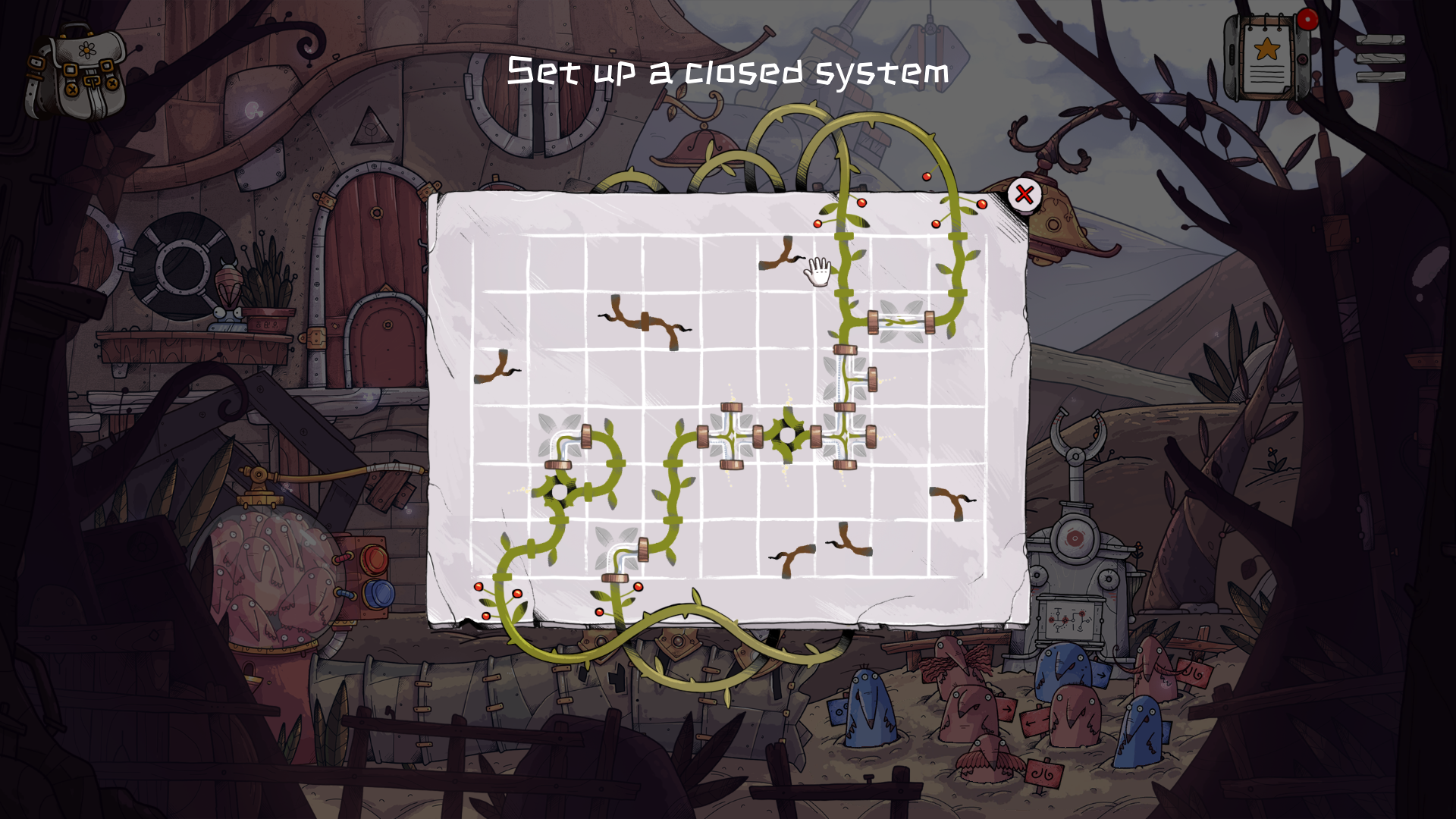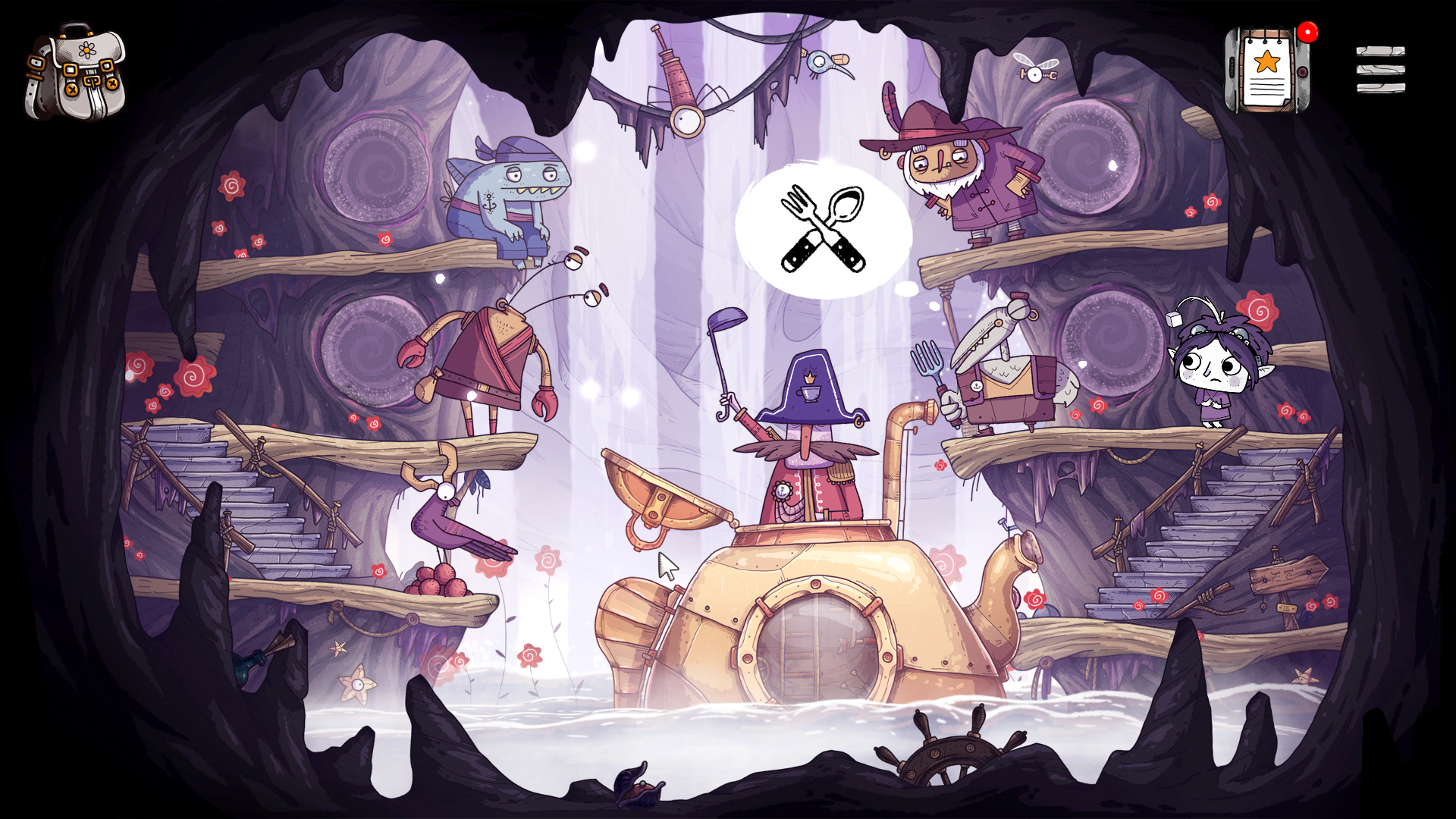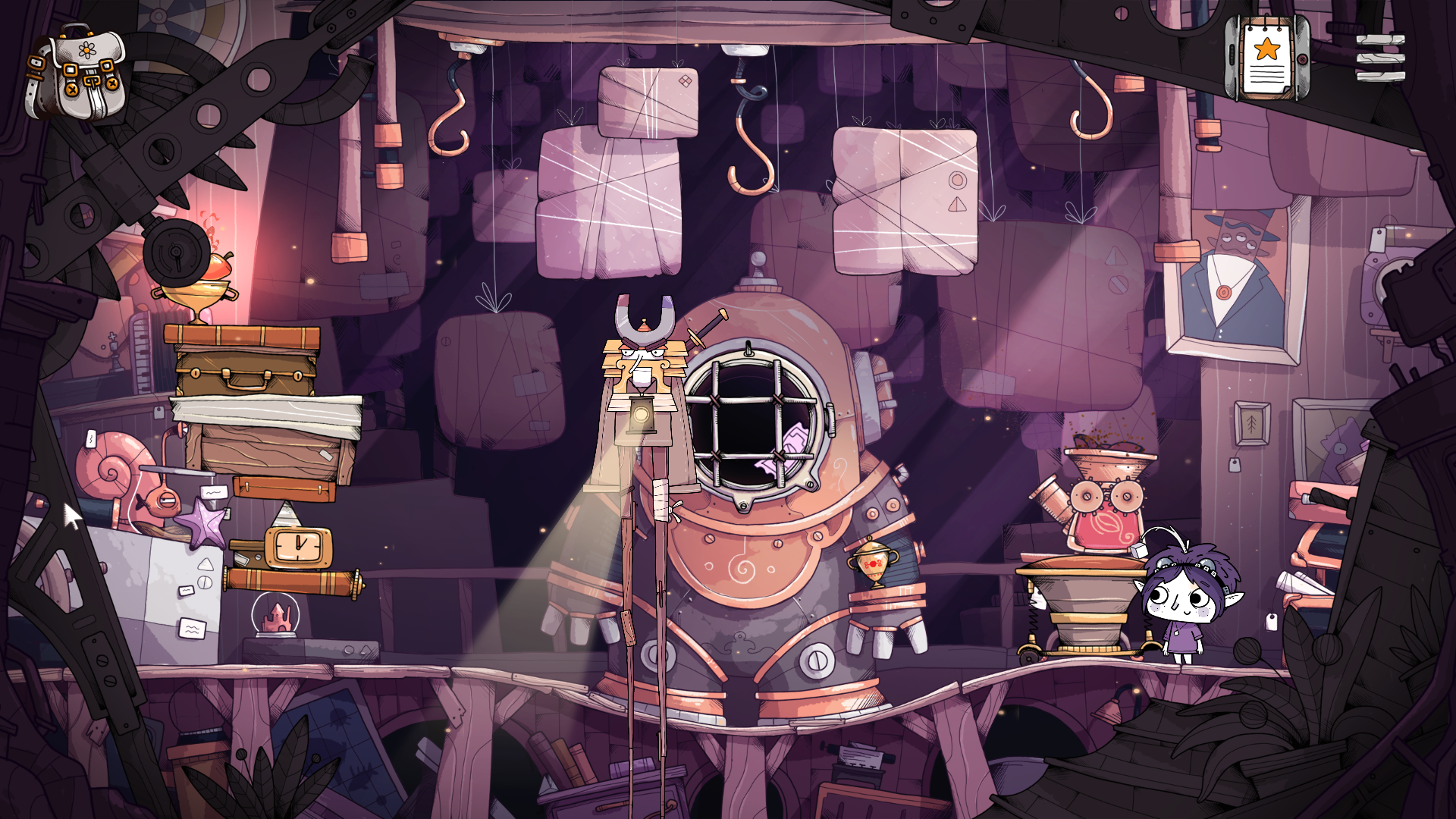Our Verdict
Quality point-and-click puzzle adventuring among impeccable artwork.
PC Gamer's got your back
What is it? A point-and-click adventure game set on the back of a fish.
Expect to pay: $15/£12 on Steam
Developer: Fireart Games
Publisher: The Irregular Corporation
Reviewed on: Windows 10, GeForce GTX 1070, Intel Core i7-9700 CPU, 16GB RAM
Multiplayer: None
Link: Official site
Tohu honors a very specific adventure game lineage. No, we are not speaking of the SCUMM golden age—that flicker of time in the mid '90s where companies like LucasArts churned out indelible, Disney-like journeys through emerald desert islands and haunted mansions. Tohu does not offer lyrical Schaferish dialogue, an intricate narrative, or a 30-hour playtime. Instead, it brings to mind the brief point-and-click revival of the early 2010s, where all of a sudden, indie developers started cranking out wonderful budget brainburners like Machinarium and Professor Layton like they never went out of style.
You play as an unnamed heroine, known as The Girl, who has the ability to transform into a hulking robot at any time, and you live a peaceful life on the back of a massive fish floating in the cosmos. (You read that right.) Minutes into the game, you're informed that the MacGuffin keeping our homefish alive and well is on the fritz, and you'll spend the rest of your time in Tohu venturing to other interstellar fish environments to fetch the doodads that will save your humble, steampunk neighborhood. All the while, you are stalked by a figure in a black hood who is ambiguously trying to muck with your plans. That's pretty much all the plot Tohu is willing to offer!

Whenever the girl made landfall on a new fish, I spent a good five minutes absorbing the tender love and care put into each of its backdrops.
There is no voiced dialogue in the game, save for a distant narrator who fills in the gap with storybook King's English. Some of the larger questions about this universe—particularly, why the hell are we all living on a fish—are hilariously left unanswered. The game doesn't even explain why the girl has a robot alter ego; you are only asked to switch into his persona in order to lift heavy things that might be in the way. Instead, Tohu focuses all of its inventiveness on its puzzles—which is great news for a very distinct type of adventure gamer who always valued the cryptology in Broken Sword over the romantic plight of George and Nico.
And honestly? That's totally fine with me. It was refreshing to excise all of the ancillary non-relevant dialogue trees found in other adventure games and just get down to business with the Rube Goldberg contraptions in front of me. Tohu doesn't really lose anything within that deemphasis, either. In fact, one of the game's best attributes is how it drips with character despite the lack of worldbuilding.
Whenever the girl made landfall on a new fish, I spent a good five minutes absorbing the tender love and care put into each of its backdrops. The art direction resists easy comparison, but the closest analogue I can place is the whimsical gothic deco of Don't Starve. I walked through frigid fjords, moonlit bacchanals, and greasy workshops, all delivered with a precise dose of twisted cuteness.
The lost souls you meet on this fish don't say much, but their precise silhouettes offer them more interiority than the roadside NPCs you'll meet in games that benefited from far more corporate resources. Who could forget the greasy pawn broker with eight mechanical tentacles, each occupied with its own money-grubbing task? (Working an abacus, hoisting a martini.) We're not living through a profound shortness of beautiful indies, but Tohu still manages a unique appeal that evoked, at least for me, a few stunning moments.

Tohu also has one of my favorite hint systems ever implemented in a videogame.
Of course, none of that would matter much if the puzzles were bad, and I'm pleased to report that Tohu strikes an ideal equilibrium in the adventure game gestalt. Nothing here is training-wheels easy—this isn't a kid's game—but nothing was overwhelmingly, oppressively difficult either. My least favorite sensation in point-and-click experiences is when I've exhausted all of the options in my inventory, and am forced to backtrack through the full expanse of the map, looking for whatever doodad I forgot to pick up. Luckily, you won't find any vintage, King's Quest-style unwinnable states here. On the contrary, most of Tohu's levels are kept to two or three screens per chokepoint; the answer is always in quick reach. While I'm absolutely the type of guy who will consult a guide after a few minutes wriggling around an impasse, I was pleased with how many times Tohu made me feel confident in my own deduction abilities.
In fact, a surprising number of the game's brain teasers are delivered through straight-up, pen-and-paper style logic problems—stuff you'd see in Professor Layton. One of the first things you'll do in Tohu is solve a Pipe Mania grid, which could be a turn off if you're looking for the bigger, more thematic questions asked by, say, a Zork or a Full Throttle. But personally, I found it to be a welcome break. "Oh thank God this game isn't asking me to glue cat hair to my face."

Tohu also has one of my favorite hint systems ever implemented in a videogame. If you pull up your menu, you always have the opportunity to access some pictographs demonstrating the general idea of the solution you're seeking out. But they can only be unlocked if you play a quick timing mini-game, which is just annoying enough to encourage you to figure out the answer on your own. Never has being a cheater felt so punitive. When they finally get around to that new Tex Murphy installment, they should gate all clues behind a crossword puzzle.
Eventually, Girl and robot will return back to her home planet and solve the ambiguous crisis here to doom us all. Some mild plot points will be resolved, and Tohu will fade off into the distance leaving nothing more than a winsome memory. Tohu isn't so novel or inventive or risky that it's going to reorient your view of the genre, but it has charm, and that's no small feat.
Quality point-and-click puzzle adventuring among impeccable artwork.

Luke Winkie is a freelance journalist and contributor to many publications, including PC Gamer, The New York Times, Gawker, Slate, and Mel Magazine. In between bouts of writing about Hearthstone, World of Warcraft and Twitch culture here on PC Gamer, Luke also publishes the newsletter On Posting. As a self-described "chronic poster," Luke has "spent hours deep-scrolling through surreptitious Likes tabs to uncover the root of intra-publication beef and broken down quote-tweet animosity like it’s Super Bowl tape." When he graduated from journalism school, he had no idea how bad it was going to get.


